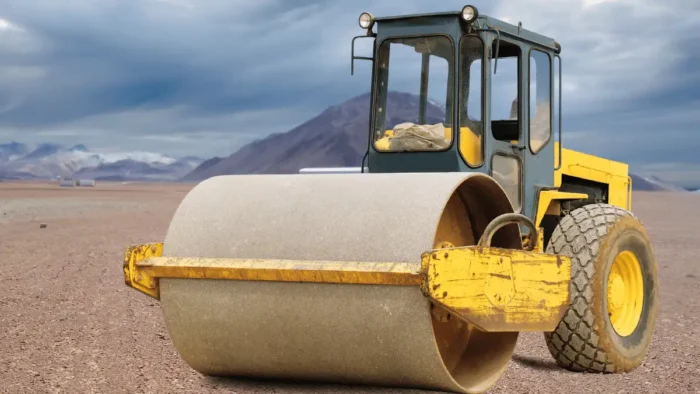Are you ready to build your dreams from scratch? Opening a construction company is an exciting venture that allows you to create, innovate, and shape the world around you. But before you can break ground on your first project, there are essential supplies you’ll need to ensure your company’s success. These six supplies are the backbone of any construction company, from heavy-duty machinery to the smallest tools.
In this blog post, we’ll dive into each one, helping you understand why they’re crucial and how they’ll pave the way for your construction company’s triumphant journey. So, let’s roll up our sleeves and get started!
1. Heavy Machinery
Heavy machinery is the backbone of any construction company, enabling the efficient execution of large-scale projects. These powerful tools encompass various pieces of equipment, from excavators and bulldozers to cranes and concrete mixers.
They play a crucial role in tasks like excavation, grading, material handling, and concrete pouring. Acquiring and maintaining heavy machinery is a significant investment, but it’s essential for meeting project deadlines and ensuring the safety of your workers.
Regular maintenance and proper training for operators are essential to maximizing the lifespan and performance of these machines. Additionally, safety protocols must be strictly observed when working with heavy machinery to prevent accidents and injuries on the construction site.
2. Lifting Solutions
Lifting solutions are indispensable in the construction industry, providing the means to hoist and move heavy loads safely. This category includes equipment such as chain hoists, winches, slings, and rigging hardware. For instance, steel link chains offer exceptional strength and durability, making them a preferred choice for lifting applications that demand reliability and resilience.
Choosing the right lifting equipment and ensuring its proper maintenance are crucial for worker safety and operational efficiency. Rigorous inspection, adherence to load capacity limits, and employee training are critical elements in preventing accidents and maintaining a secure and productive construction environment. Properly executed, these solutions enhance workflow and reduce the risk of workplace mishaps.
3. Power Tools
Power tools are the lifeblood of construction company projects, empowering workers to cut, shape, fasten, and manipulate materials precisely and quickly. These electric, pneumatic, or battery-operated devices include drills, saws, grinders, and nail guns. Power tools enhance efficiency, making tasks like framing, carpentry, and concrete work more manageable.
However, their safe and effective use requires proper training and the use of personal protective equipment. Regular maintenance and inspection are essential to ensuring their longevity and reliability. Investing in high-quality power tools can lead to increased productivity and quality of work, making them a cornerstone of any construction company’s toolkit.
4. Safety Gear and Personal Protective Equipment (PPE)
Safety gear and personal protective equipment (PPE) are non-negotiable elements for construction companies, safeguarding workers from potential hazards on the job site. This category includes hard hats, safety glasses, high-visibility clothing, steel-toed boots, and respiratory protection. PPE is a vital line of defense against head injuries, eye damage, falls, and respiratory issues caused by dust and chemicals.
Employers must prioritize the provision of PPE and enforce its consistent use. Regular training ensures workers understand how to wear and maintain their equipment correctly. Prioritizing PPE not only complies with safety regulations but also fosters a culture of well-being, reducing the risk of accidents and promoting a safer work environment for all.

5. Materials and Supplies for the Construction Company’s Project Execution
Efficient project execution in the construction industry relies heavily on a carefully managed inventory of materials and supplies. These encompass many items, including construction materials like lumber, concrete, and steel and fasteners such as nails, screws, and bolts. Safety items such as barriers, cones, and first aid kits are essential for creating secure job sites.
Additionally, job site signage is crucial in directing workers and alerting visitors to potential hazards. Having a well-organized and adequately stocked inventory of these materials ensures seamless project progress, minimizes downtime, and supports the timely completion of construction tasks while maintaining safety and quality standards.
6. Essential Office Supplies
In the modern construction industry, efficient project management begins in the office. Essential office supplies are the foundation of effective administrative operations. Computers and laptops are project planning, communication, and document management hubs. Printers and scanners facilitate creation and distributing of plans, permits, and contracts.
Equally important is office furniture like desks, chairs, and cabinets, which provide comfortable workspaces and efficient storage. Stationery items such as pens, notepads, and paper are fundamental for taking notes, jotting down ideas, and keeping records. These supplies ensure that administrative tasks run smoothly, allowing the construction company to function efficiently, from managing finances to communicating with clients and subcontractors.
Conclusion
Opening a construction company demands a comprehensive array of supplies, from essential office equipment to heavy machinery and safety gear. These materials form the foundation for successful project execution, safety, and efficient management. Careful consideration of each category is crucial for meeting industry standards, ensuring the well-being of your workforce, and ensuring the timely completion of projects. A well-equipped construction company enhances productivity and establishes a strong foothold in a competitive industry, setting the stage for growth and success.





